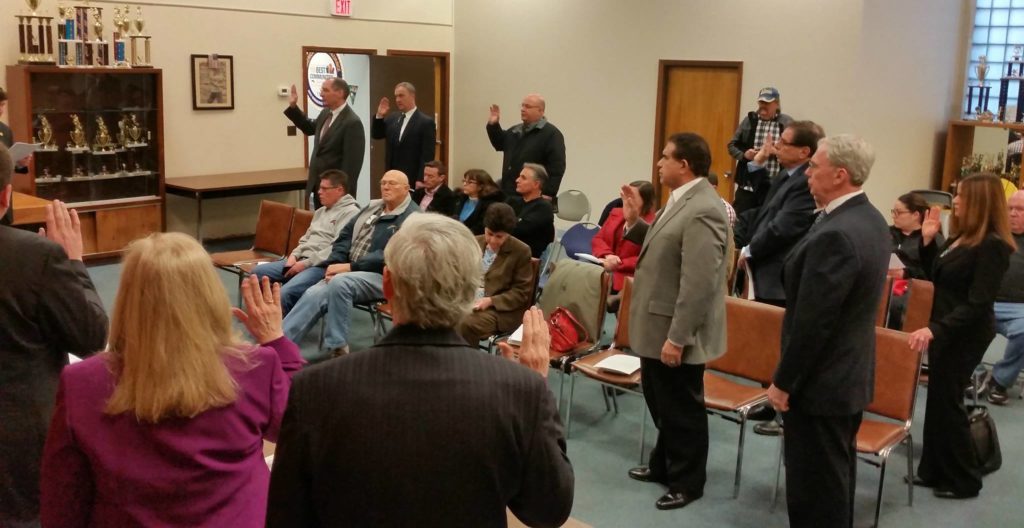Reveille for Roxbury
Listen to audio version of this article

Roxbury is Roxbury; Mount Arlington is Mount Arlington. And that’s how things are going to stay.
An ambitious plan to consolidate both Morris County towns to reduce property taxes dissolved Wednesday night, yet another casualty of New Jersey “home rule.”
A committee from both towns had spent five years or so trying to put a workable plan together to present to voters in a referendum. But in the end, the group had to take whatever solace it could from the observation of Gina Genovese, a statewide advocate of consolidating towns and sharing services, that the committee had gone further than any similar New Jersey committee had ever gone.
But unlike in “Star Trek,” there’s no reward for boldly going where no one has gone before.
No one ever suggested it’s easy to challenge home rule in New Jersey. That’s why we have 565 municipalities and even more school districts.
A committee report said consolidating Roxbury and Mount Arlington – a much smaller neighboring town – would save from $9.2 million to $11.8 million a year in property taxes. That’s significant.
However, as many have discovered previously in cases such as these, facts and logic are often superseded by raw emotion.
A meeting over the summer brought out scores of Mount Arlington residents, virtually all of whom opposed the idea. Few seemed inclined to listen to the facts. Their main fear was that Mount Arlington would be swallowed up by its larger neighbor. The horror of it all. This was home rule to the extreme – “We love our town even if doing something different could reduce taxes.”
Elected officials didn’t help either. As expected, officials in Mount Arlington went with the crowd, but those in Roxbury also opposed the idea. Yes, thinking out of the box is awfully difficult for politicians set in their ways and too comfortable with their fiefdoms.
All this in itself was not enough to doom the consolidation effort. State tax policy delivered the final kick in the gut.
Property is assessed differently in every town for tax purposes. But if two towns come together, property taxes need to be “equalized” between the two. In this case, that equalization would have negated any immediate benefit to Mount Arlington.
Craig Heard, the committee chair, spoke to state officials about a way out of this predicament, but to no avail.
One obvious question is why did it take almost five years for the equalization problem to surface?
In the end, though, that may not have mattered. Consolidation needed support from both towns and that certainly seemed dubious in Mount Arlington in any case.
At the group’s final meeting, Heard said he hoped the committee’s work will not be wasted. He said that it can – and probably should – be used to encourage the towns to share more services even if consolidation is out. Let’s see if that happens.
What likely will happen is that property taxes will continue to rise – in both towns.









Leave a Reply